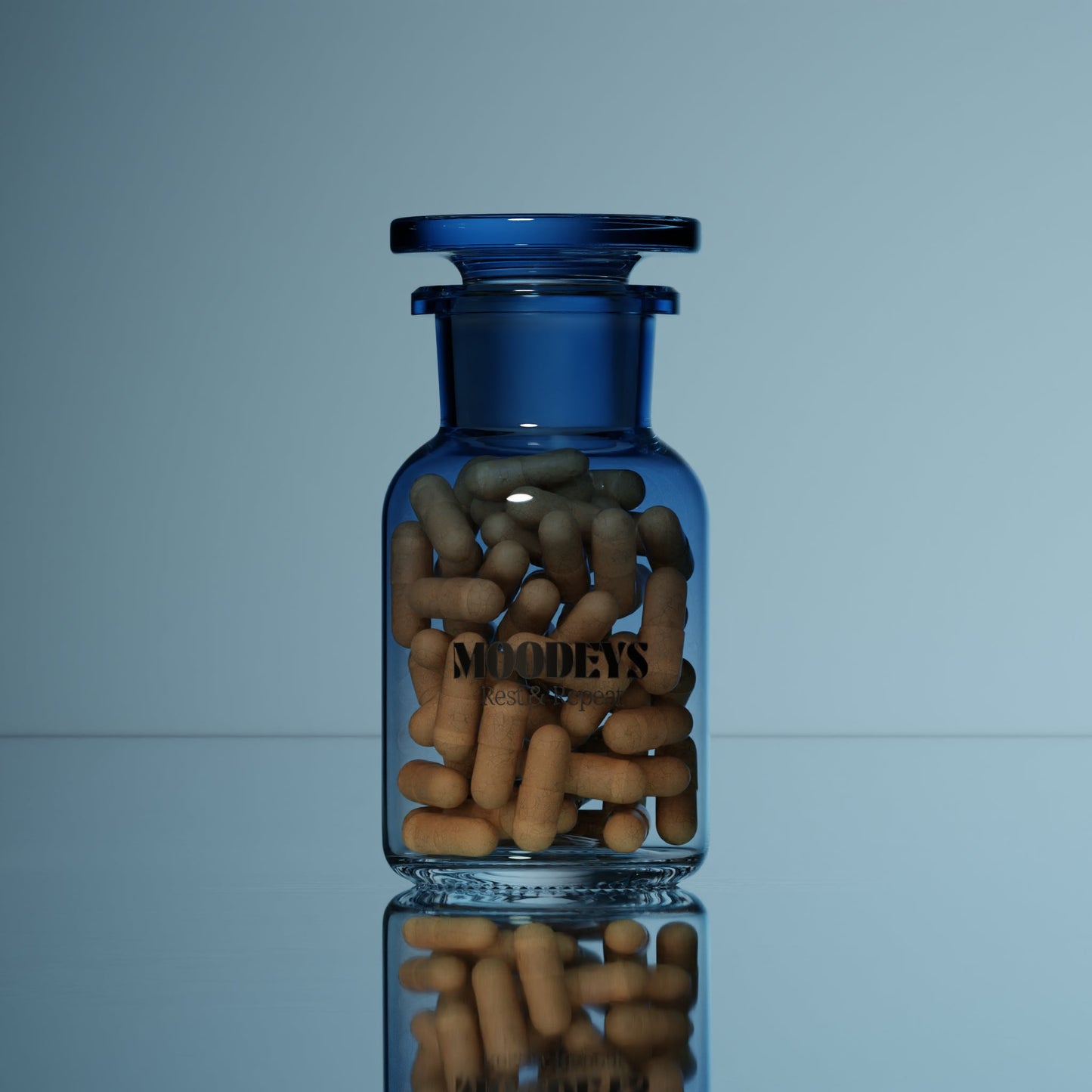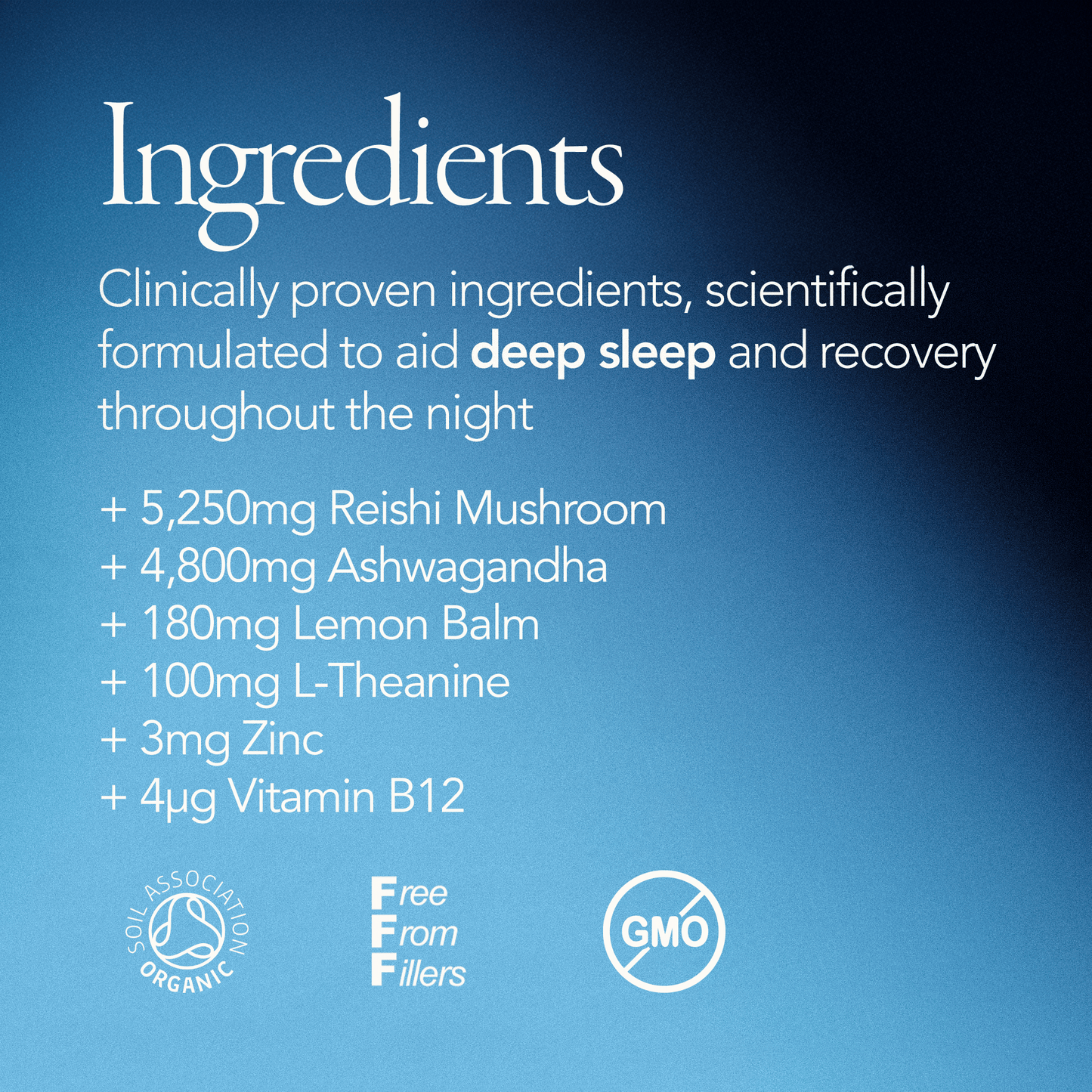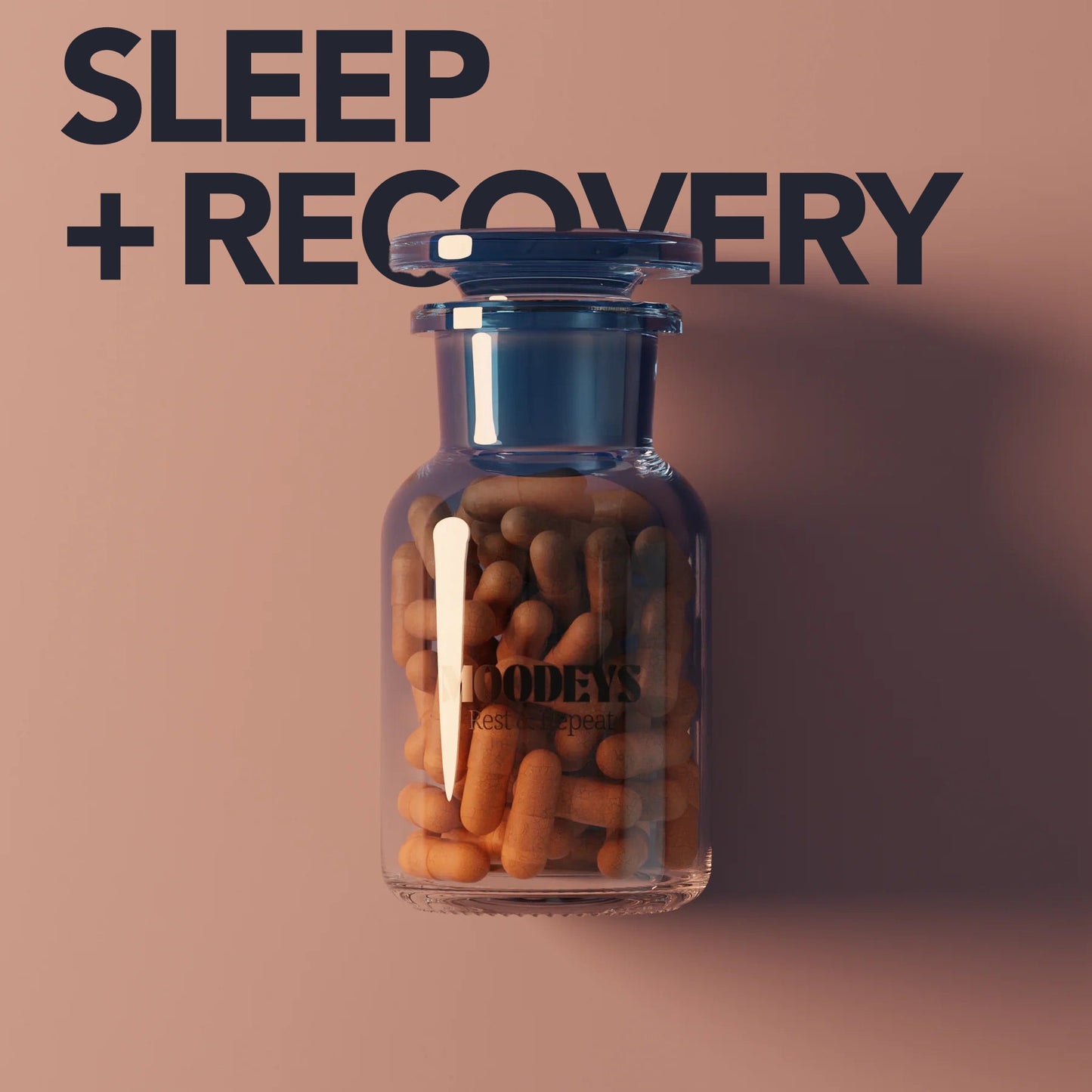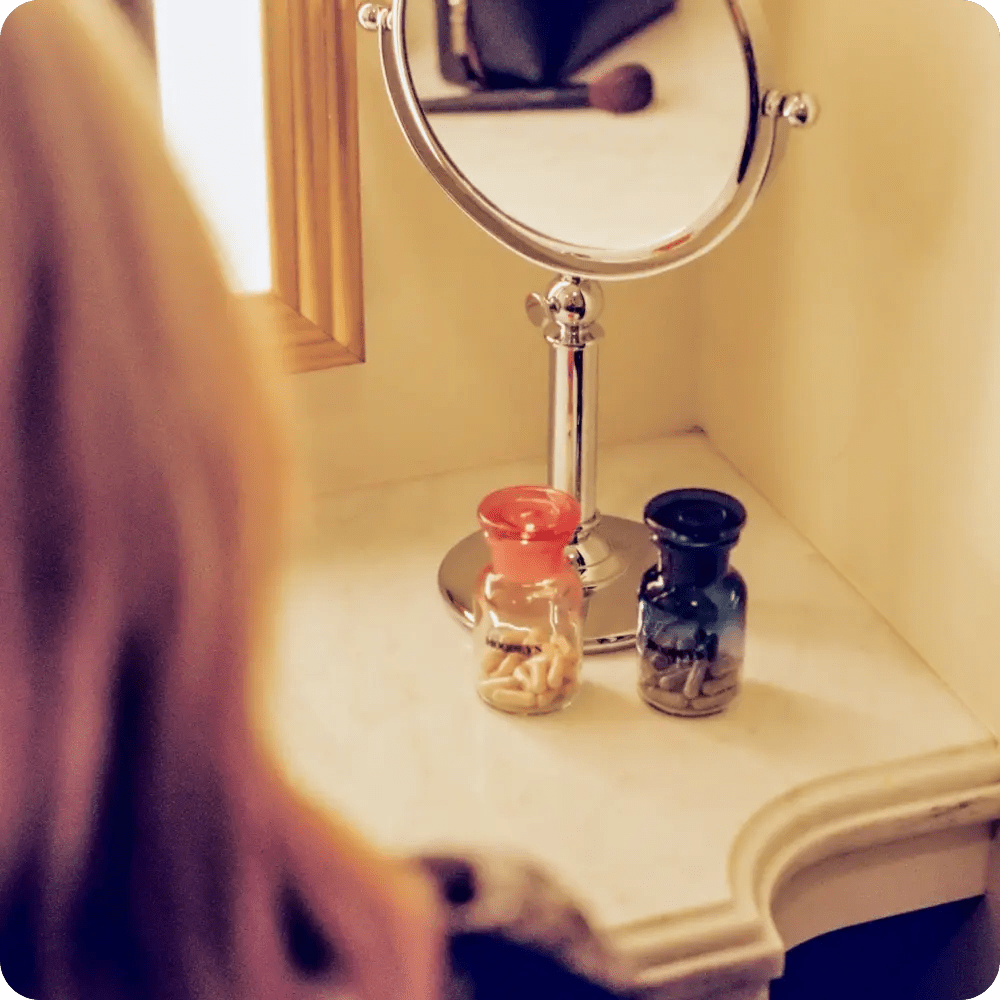
What's the best time of day to take Lion's Mane Mushroom
Lion's Mane Mushroom has been gaining popularity for its potential health benefits. Particularly in the realm of brain health and cognitive function. Lion's mane mushroom has a unique appearance and powerful properties. This mushroom is available in various forms, including powder, capsules, and extracts.
However, what's the best time of day to take Lion's Mane Mushroom? This is a common question among those wanting to reap the benefits of this cognitive enhancing mushroom.
In this article, we’ll explore the benefits of Lion's Mane and the optimal timing for consumption. Finally we'll look at how to incorporate it into your daily routine.
The Benefits of Lion's Mane Mushroom
Lion's Mane Mushroom (Hericium erinaceus) is renowned for its ability to support brain health and cognitive function. Research shows that it may stimulate the production of nerve growth factor (NGF). This is a protein crucial for the growth, maintenance, and survival of neurons. This makes Lion's Mane Mushroom particularly beneficial for enhancing memory, concentration, and overall mental clarity.
Additionally, Lion's Mane has been linked to various other health benefits, including:
Improved Immune Function:
By modulating the immune system, Lion's Mane can help protect against illnesses and infections.
Anti-Inflammatory Properties:
It may reduce inflammation, which is beneficial for overall health and chronic disease prevention.
Digestive Health:
Lion's Mane supports the digestive system by promoting a healthy gut microbiome.
Mood Enhancement:
Some studies suggest it can help alleviate symptoms of anxiety and depression.
How Much Lion's Mane Should You Take?
The appropriate dosage of Lion's Mane depends on several factors, including:
- Your age
- Health status
- The form of Lion's Mane you are using (fresh, powder, capsules, or liquid extract).
Daily Dosage of Lion's Mane Mushroom
Generally we recommend a daily dosage of 500 to 3,000 mg for most people. However, it's always best to start with a lower dose and gradually increase it to assess your body's response.
3. Comfortable Sleep Environment
Bedroom Activities
Research shows that doing anything in bed other than sleeping can disrupt sleep, because we link rooms to activities. If your bedroom is for relaxing, you'll think of it as a place to unwind.. That’s why it’s best to keep a tv in the living room, and not work from your laptop in bed or scroll on your phone. Any of these activities cause stimulation, scrolling, video games and watching tv, therefore, this should happen in another room.
Bedroom Temperature
Secondly, having the temperature between 60 to 67° F or 15 to 19° C, is ideal for sleep. It helps to lower your body temperature, signalling to your body that it's time to sleep.
By creating a comfortable sleep environment, you'll be able to improve the quality of your sleep. Helping you wake up feeling refreshed and energised.
4. Limit Caffeine and Alcohol
Consuming caffeine and alcohol can have a negative impact on the quality of your sleep. Caffeine is a stimulant that can make it difficult to fall asleep. While alcohol can disrupt your sleep cycle, causing you to wake up frequently throughout the night.
Reduce Alcohol and Time Your Caffeine Input
To ensure a good night's sleep, it's important to limit your intake of caffeine and alcohol, especially before bedtime. Consider switching to decaf coffee or herbal tea in the evening, limiting your last coffee to 2pm. Also, avoid consuming alcohol at least a few hours before you plan to go to bed.
5. Regular Exercise
Regular exercise is not only beneficial for our physical health but also for our mental well-being. It helps to reduce stress and anxiety, which are common culprits of sleepless nights. Exercise also increases the production of endorphins. These are natural mood boosters that can help improve our overall mood and reduce symptoms of depression and anxiety.
Don’t Exercise Too Late
However, it's important to note that exercising too close to bedtime can have the opposite effect. It can make it harder to fall asleep. This is because exercise increases our heart rate and body temperature. This can interfere with our body's natural sleep-wake cycle.
Reap The Benefits of Exercise
Therefore, it's best to aim for morning or afternoon workouts to reap the benefits of a good night's sleep. Even a short 30-minute walk or yoga session can make a significant difference in the quality of our sleep. So, make sure to prioritise regular exercise in your daily routine to improve your sleep and overall well-being.
Conclusion
Humans sleep a third of their lives. Therefore, it’s essential to create good habits to ensure a healthy lifestyle. By creating a bedtime routine, limiting screen time, creating a comfortable sleep environment, avoiding caffeine and alcohol, and exercising regularly, you can set yourself up for a good night's sleep.
If you are looking to try health supplements to promote relaxation and calmness. Moodeys’ Rest & Repeat offers a blend of premium organic reishi mushroom, ashwagandha, l-theanine, lemon balm, zinc and vitamin B12.
Organic Reishi Mushroom: Deemed in traditional Eastern medication to promote long-term health and longevity. Reishi mushrooms may help support the immune system, reduce inflammation, promote relaxation, improve sleep and manage stress and anxiety.
Ashwagandha:Ashwagandha is a revered natural herb known for it's anti-stress qualities. Additional properties include anti-aging, muscle strength & recovery, memory, cognition and improved sleep.
L-theanine: A natural amino acid with studies that link it to composure and the calm mental state associated with alpha brain wave activity. L-theanine makes you calm without the drowsiness.
Lemon balm: Lemon balm has been used for centuries as a natural remedy for stress, anxiety, and sleep issues. The anti-stress properties of lemon balm are well documented.
Zinc: Zinc is an essential nutrient. It plays a key role in skin health, thyroid function, cell growth, and inflammation. With a major benefit of regulating normal function of the immune system.
Vitamin B12:B vitamins are vital to avoid compounding cognitive decline. A natural source of vitality and focus. With B12 clinically proven to reduce tiredness and fatigue.
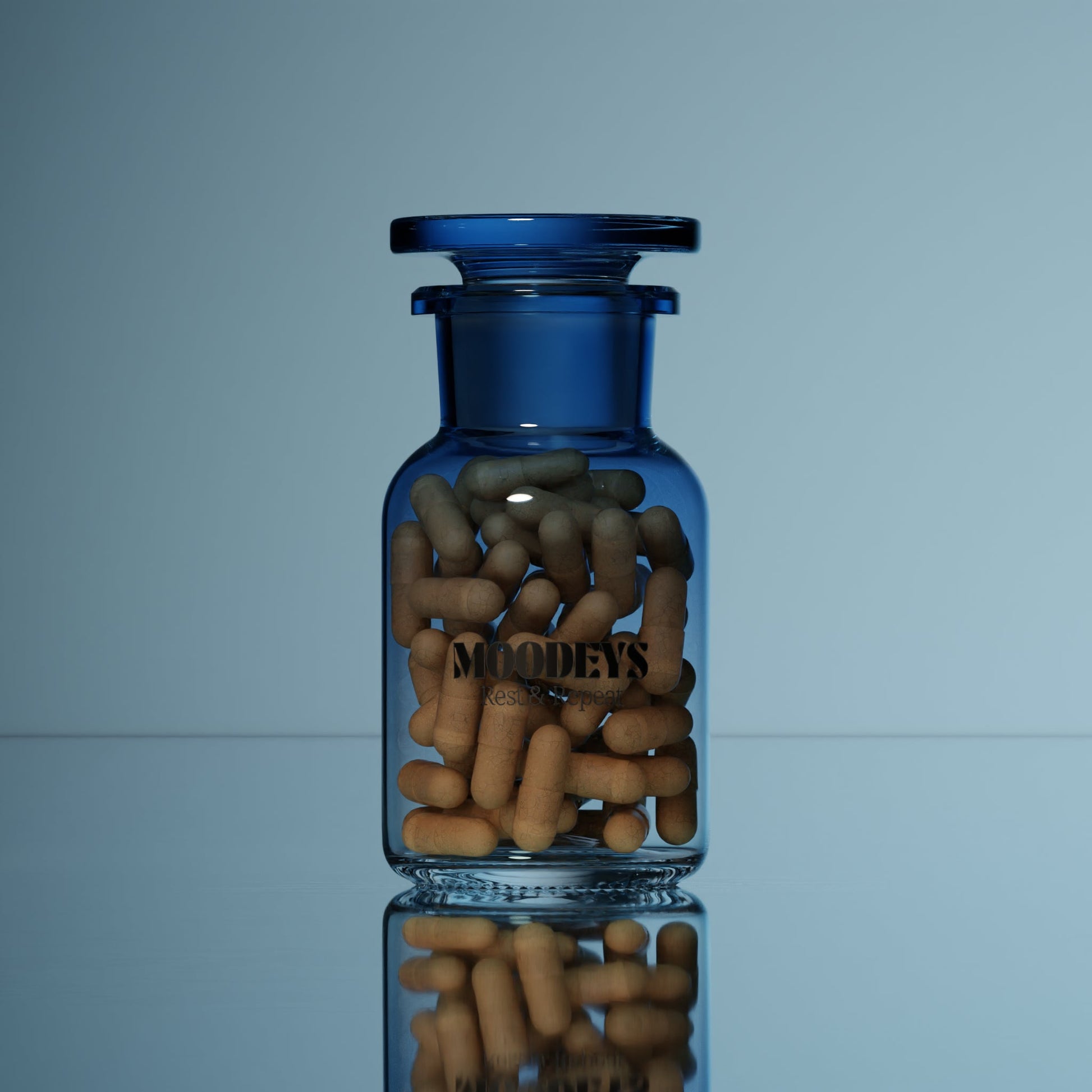
Rest & Repeat
